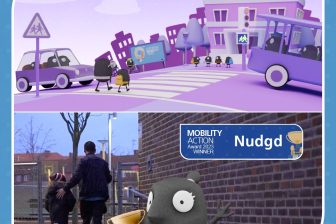
School grounds alliance adopts play sector approach to risk
The International body promoting good practice in the design and use of school grounds has published a ‘declaration’ on risk management that draws on the pioneering approach of the UK and international play sectors. Adrian Voce reports.
The International School Grounds Alliance (ISGA) has published a statement on the assessment and management of risks in outdoor play and learning. Risk in Play and Learning: the Ubud-Höök Declaration (after the Indonesian and Swedish centres where it was developed) was published earlier this month.
The new declaration is based substantially on the ground-breaking position statement and subsequent good practice guidance of the UK Play Safety Forum, Managing Risk in Play Provision (2008, revised 2012).
Since the world is full of risks, children need to learn to recognise and respond to them
The declaration cites research from around the globe demonstrating the benefits of risk-taking and showing that indiscriminate risk-minimisation policy can do more harm than good. In the same way that the UK guidance did for play providers, the declaration calls on those who plan and manage school environments to take into account the benefits of children having encounters and experience that contain an element of risk. It encourages ‘parents, school officials, legislators and insurers’ to develop policies and procedures to enable schools to have the confidence to provide activities with ‘beneficial levels of risk’.
‘Risk-taking is essential for children’s well-being’
In a statement accompanying the declaration the ISGA said, “While promoting risk-taking on school grounds may raise questions of liability for schools and concerns for parents it is essential for the development of healthy young people”. The declaration is endorsed by all 54 of ISGA’s Leadership Council members, representing 38 organizations from 16 countries and six continents.
The risk-benefit approach pioneered by the UK play sector was, crucially, supported by the official Health and Safety Executive and adopted by the UK government in 2008 as part of official guidance to local authorities and their suppliers implementing the national Play Strategy. It challenged the abiding but erroneous assumption that duties of care under health and safety law compelled providers to make play provision as safe as possible. This had led to a trend of what many play practitioners and advocates saw as sterile, unappealing playgrounds with very little real play value for children.
School grounds should not be as safe as possible, but as safe as necessary.
The Risk in Play and Learning Declaration was developed at ISGA Leadership Council meetings in Ubud, Bali, Indonesia and Höör, Sweden. The ISGA is inviting those who support the principles it contains to download a copy of the Declaration, which it has made available in several languages.
The Play Safety Forum – a cross-sector group in the UK, convened by the Children’s Play Council and its successor, Play England – established the principles that provision should not be as safe as possible (that, indeed, this approach was meaningless, implying that children should never be challenged or allowed to try new experiences), but only as safe as reasonable, and that such judgments should be made by practitioners and providers – not ‘health and safety experts’ or equipment inspectors – who should take account of the essentially adventurous nature of childhood and therefore of the benefits to children of being allowed to take risks when they play. Some of the principles and language of these documents is echoed in the new declaration.
Adrian Voce
Photo: Alamy/Daily Mail
Endorse Risk in Play and Learning: the Ubud-Höök Declaration
The ISGA encourages individuals and organizations around the world to show their support for the benefits of risk in play and learning by endorsing the Declaration. Please click here for information




